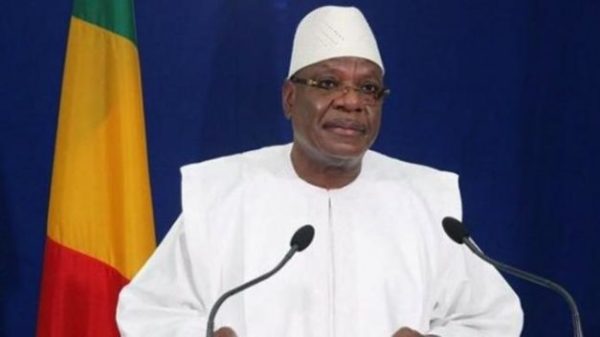The Malian presidential elections of July 29, 2018 reveal the state of decomposition
advanced economic and political field of this region of the Sahel. In all, 24 candidates vie for the supreme office without clear ideological or programmatic demarcation. It seems that the classic lines of left-right, progressive-conservative, liberal-communist lines no longer work in the Sahel. Ditto for sampling and opinion polls, which are binding only on those who believe in it. In this large solarium where the president Ibrahima Boubacar Keita said 73-year-old IBK, decided to represent to everyone’s surprise, all the markers seem lost, buried in the sand. Since his palace nestled on the heights of Koulouba hill, the Koutiala sphinx, reports a worrying aphasia in relation to the news of the front and the serious inter-ethnic exactions that take place in the center of the country.
The heavy losses of the Malian soldiers and those of the UN in the North weaken the balance sheet of this former opponent, rightly and wrongly designated as the cause of the blocking of the Algiers agreements. On the economic front, Mali has become the laboratory of experimentation of the flagrant decoration between the macroeconomic growth and the real impact of the recorded flows on the well being of the population. Admittedly, the projected real GDP in 2018 is 5%.
But what about official development assistance in this ratio put forward in
reports appeared simultaneously in recent days in some media in Paris? If the IMF actually welcomes a budget deficit of less than 3%, should we forget that it is because of the freezing of expenditure, or even public investment?
Faced with IBK and its allies, none of the 23 candidates seems to make the weight. Neither Soumaila Cissé, presented as the leader of the opposition, much less Cheikh Modibo Diarra, Modibo Sidibe, Modibo Koné or the businessman Aliou Boubacar Diallo, have
the means, individually, to brake the machine IBK. Observers are unanimous. Only a strong coalition is likely to force alternation. That’s where the problem lies.
The multitude of alliances signed today are denounced the next day as each candidate is convinced of his national destiny. However, Modibo Diarra will not deny us, the ascent to the palace of Koulouba is more complicated than the setting in orbit of a satellite of NASA. In short, Mali is Africa in miniature.
The parody of democracy has given birth to electoralism in a context of poverty and illiteracy. In view of this big joke, one is justified in asking whether the enlightened dirigisme of a Paul Kagame is not the necessary way in which any poor country under construction must pass before engaging in electoral contests where Candidates, failing to carry out coherent programs, are obliged to buy elected officials and opinion leaders. Most poor, so-called democratic African countries can not solve the problem of basic infrastructure. The provision of water and electricity is failing in many cases. Elections are funded from abroad and validated by international observers. Valuable time is lost in games while the urgency is to the satisfaction of basic needs. Health, and education. Still and always.



